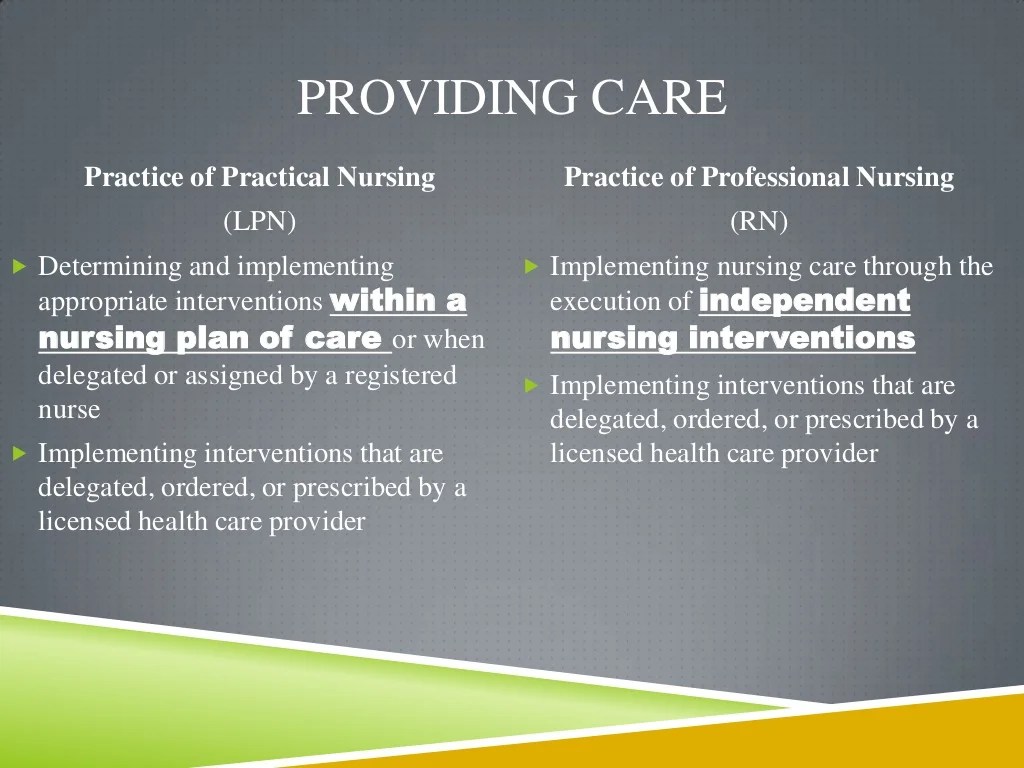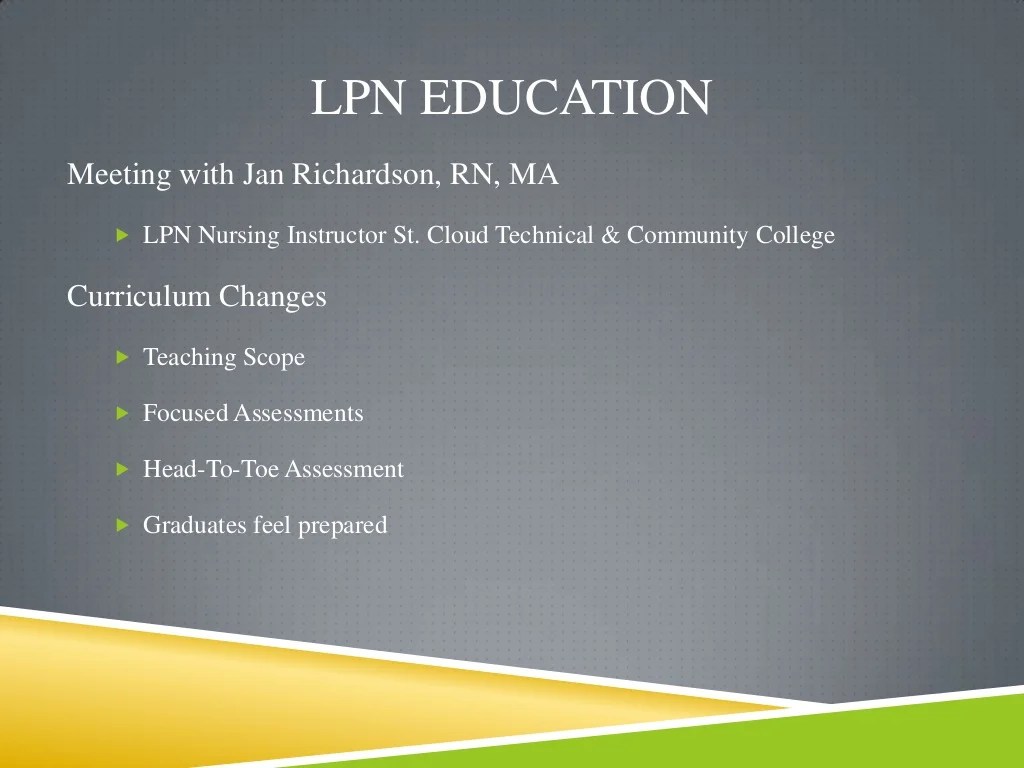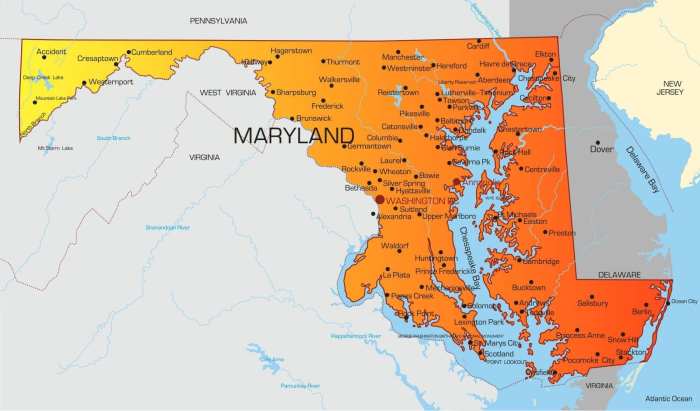Lpn scope of practice maryland – In the realm of healthcare, understanding the scope of practice for Licensed Practical Nurses (LPNs) is paramount, and Maryland is no exception. This article will delve into the legal framework, authorized procedures, limitations, and educational requirements governing LPNs in Maryland, providing a comprehensive overview for healthcare professionals and aspiring nurses alike.
The Maryland Board of Nursing meticulously Artikels the parameters of LPN practice, ensuring patient safety and adherence to professional standards. LPNs play a vital role in healthcare delivery, performing a wide range of tasks under the supervision of registered nurses or physicians.
LPN Scope of Practice in Maryland: Lpn Scope Of Practice Maryland
The scope of practice for Licensed Practical Nurses (LPNs) in Maryland is defined by state law and regulations. The Maryland Board of Nursing (BON) is responsible for overseeing the practice of nursing in the state, including the scope of practice for LPNs.
LPNs in Maryland are authorized to perform a wide range of nursing tasks under the supervision of a registered nurse (RN) or other qualified healthcare professional. These tasks include:
Assessment and Monitoring, Lpn scope of practice maryland
- Obtaining and recording vital signs, such as blood pressure, pulse, respiration, and temperature
- Monitoring patients for changes in condition
- Performing physical examinations
Treatment and Procedures
- Administering medications
- Performing wound care
- Inserting and maintaining intravenous (IV) lines
- Assisting with surgeries and other medical procedures
Education and Counseling
- Providing patient education
- Counseling patients and families
- Participating in discharge planning
LPNs in Maryland are also authorized to perform other tasks as delegated by a supervising RN or other qualified healthcare professional. However, LPNs are not authorized to perform tasks that require the independent judgment of an RN, such as diagnosing and treating illnesses or prescribing medications.
Education and Training Requirements for LPNs in Maryland

Aspiring Licensed Practical Nurses (LPNs) in Maryland must meet specific educational and training criteria to practice in the state. These requirements ensure that LPNs possess the necessary knowledge, skills, and experience to provide safe and competent patient care.
Educational Requirements
To become an LPN in Maryland, individuals must complete an approved Practical Nursing program from an accredited institution. These programs typically last for 12-18 months and include coursework in nursing fundamentals, medical terminology, pharmacology, anatomy and physiology, and clinical practice.
Training and Clinical Experience
In addition to completing the educational program, LPNs in Maryland must also complete supervised clinical experience. This experience allows them to apply their knowledge and skills in a real-world setting under the guidance of experienced nurses. The required number of clinical hours varies depending on the specific program, but generally ranges from 600 to 1,200 hours.
Continuing Education and Professional Development
Once licensed, LPNs in Maryland are required to complete 30 hours of continuing education every two years to maintain their license. This continuing education helps ensure that LPNs stay up-to-date on the latest nursing practices and advancements in healthcare.
LPN Job Market in Maryland

The LPN job market in Maryland is currently experiencing a high demand for qualified professionals. According to the Maryland Department of Labor, there are over 25,000 LPNs employed in the state, and the number is expected to grow in the coming years.
This growth is driven by the increasing demand for healthcare services, particularly in long-term care facilities and home health settings.
Employment Outlook for LPNs in Maryland
The employment outlook for LPNs in Maryland is positive. The Maryland Department of Labor projects that the number of LPN jobs in the state will grow by 10% between 2020 and 2030. This growth is expected to be driven by the increasing demand for healthcare services, particularly in long-term care facilities and home health settings.
LPNs in Maryland have a wide scope of practice, including providing care to patients with a variety of conditions. For example, they may be responsible for assessing patients’ vital signs, administering medications, and providing wound care. In addition, LPNs may also be involved in educating patients about their health conditions and providing support to their families.
A bag of cement weighing 325 N is a heavy object that can be difficult to lift. However, LPNs are trained to safely move and handle patients, even those who are heavy or immobile. This is an important skill that allows LPNs to provide essential care to patients in a variety of settings.
Industries and Healthcare Settings Where LPNs Are Commonly Employed in Maryland
LPNs are commonly employed in a variety of healthcare settings in Maryland, including:
- Hospitals
- Long-term care facilities
- Home health agencies
- Hospice care
- Doctor’s offices
- Community health centers
LPNs in Maryland typically provide basic nursing care to patients, such as:
- Taking vital signs
- Administering medications
- Assisting with bathing and dressing
- Monitoring patients’ conditions
- Providing emotional support
Compensation and Benefits for LPNs in Maryland

LPNs in Maryland enjoy competitive compensation and benefits packages that reflect their valuable contributions to the healthcare industry. The average annual salary for LPNs in Maryland is around $60,000, which is higher than the national average. In addition to their base salary, LPNs in Maryland may also receive benefits such as health insurance, paid time off, and retirement plans.
Factors Affecting LPN Compensation in Maryland
Several factors can affect the compensation of LPNs in Maryland, including:
- Experience: LPNs with more experience typically earn higher salaries than those with less experience.
- Education: LPNs with additional education, such as an associate’s degree or certification, may earn higher salaries.
- Location: LPNs working in urban areas typically earn higher salaries than those working in rural areas.
- Employer: Different employers may offer different compensation packages, so it’s important to compare offers before accepting a position.
Comparison to Other States
Compared to other states, LPNs in Maryland earn competitive salaries. According to the Bureau of Labor Statistics, the average annual salary for LPNs in the United States is around $48,000. This means that LPNs in Maryland earn approximately 25% more than the national average.
Professional Organizations for LPNs in Maryland

Joining a professional organization can provide numerous benefits for LPNs in Maryland. These organizations offer opportunities for networking, continuing education, and advocacy.
Maryland Association of Licensed Practical Nurses (MALPN)
The MALPN is the largest professional organization for LPNs in Maryland. It provides a variety of services to its members, including:
- Continuing education opportunities
- Networking events
- Advocacy for LPNs at the state level
Frequently Asked Questions
What procedures are LPNs authorized to perform in Maryland?
LPNs in Maryland can perform a variety of procedures, including medication administration, wound care, patient monitoring, and assisting with diagnostic tests.
What are the educational requirements to become an LPN in Maryland?
To become an LPN in Maryland, individuals must complete an accredited practical nursing program and pass the National Council Licensure Examination (NCLEX-PN).
What is the job outlook for LPNs in Maryland?
The job outlook for LPNs in Maryland is expected to be favorable, with a projected growth rate of 9% from 2020 to 2030.